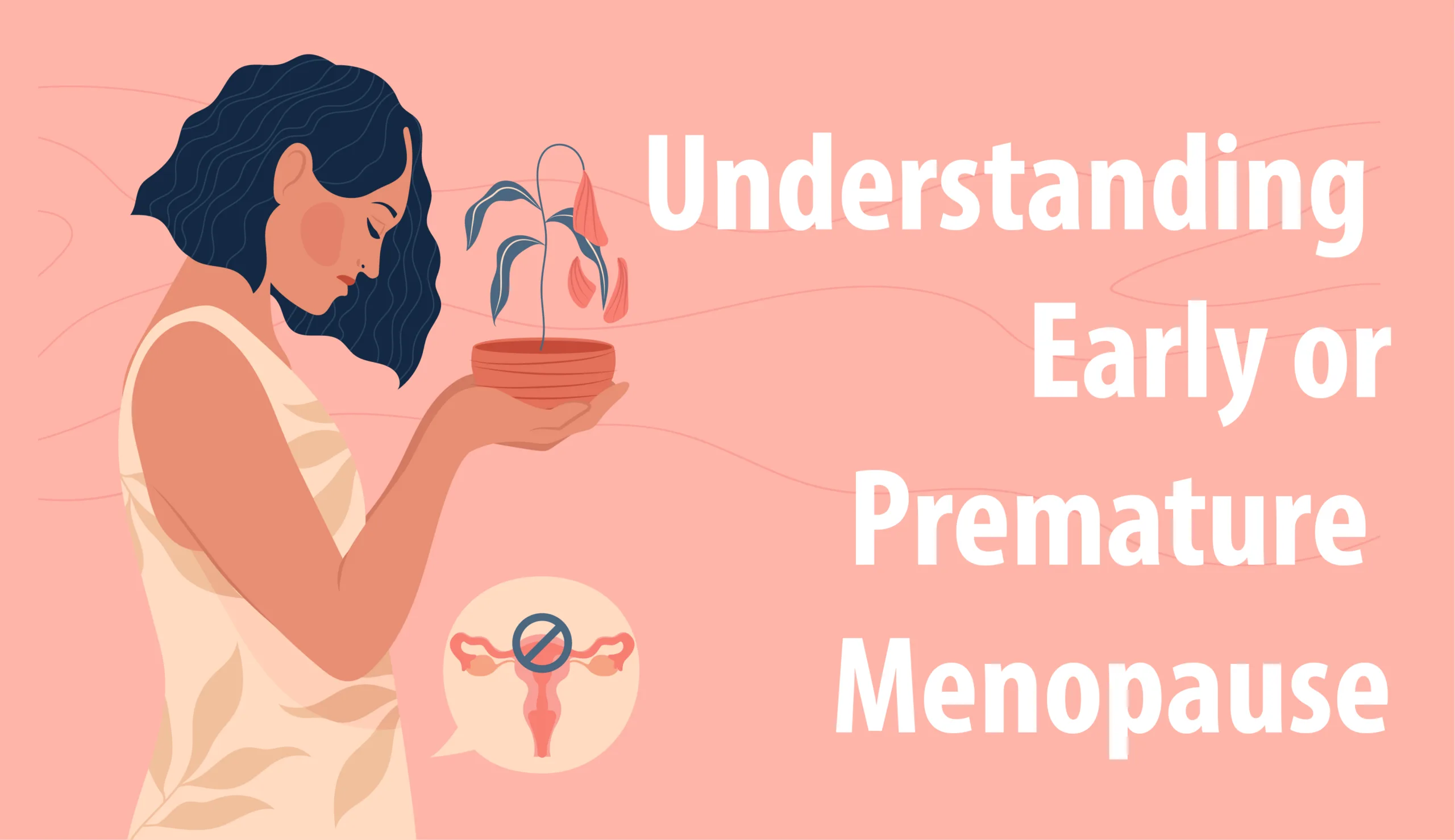
What is Early or Premature Menopause?
Early or premature menopause refers to the cessation of menstrual cycles before the age of 40. It is a condition that affects approximately 1 in every 1000 women between the ages of 15 and 29, and 1 in every 100 women between the ages of 30 and 39.
The Difference Between Normal Menopause and Early Menopause
The primary difference between regular menopause and early menopause is the age at which they occur. While the former typically begins between the ages of 45 and 55, the latter can start much earlier.
Causes of Early Menopause
Several factors can contribute to early menopause, including genetics, autoimmune disorders, and certain medical treatments like chemotherapy and radiation. Additionally, surgical removal of the ovaries can cause immediate menopause.
Symptoms of Early Menopause
The symptoms of early menopause can vary from woman to woman.
Physical Symptoms
These can include hot flashes, night sweats, reduced libido, vaginal dryness, and difficulty sleeping.
Emotional and Psychological Symptoms
Many women experience mood swings, anxiety, depression, and difficulty concentrating.
Diagnosing Early Menopause
Diagnosis typically involves a physical exam, detailed medical history, and blood tests to measure hormone levels.
Treatment and Management
There’s no cure for early menopause, but treatments can help manage symptoms.
Hormone Replacement Therapy (HRT)
HRT involves taking medications to replace hormones the body no longer makes after menopause.
Lifestyle Changes
Healthy lifestyle choices like regular exercise, balanced diet, and quitting smoking can help manage symptoms and improve overall health.
Impact on Fertility
Early menopause often results in infertility, which can be a significant concern for women who want to have children.
Early Menopause and Long-term Health Risks
Early menopause can increase the risk of certain health conditions.
Osteoporosis
The drop in estrogen levels can lead to loss of bone density, increasing the risk of osteoporosis.
Cardiovascular Disease
Early menopause can also increase the risk of heart disease due to lower levels of estrogen.
Coping with Early Menopause
Support groups, counseling, and open communication with partners can help cope with emotional and psychological challenges.
Conclusion
Though early menopause can be a challenging experience, understanding the condition and seeking appropriate treatment can help manage its physical and emotional impact.
FAQs
- What is the average age for menopause?
The average age for menopause in women is 51. However, menopause can occur earlier or later for some women.
- Can early menopause be reversed?
No, early menopause cannot be reversed. However, its symptoms can be managed through various treatments.
- Can you still get pregnant during early menopause?
Pregnancy is unlikely during early menopause, but not impossible until menopause is complete. If pregnancy is desired, it’s important to discuss options with a healthcare provider.
- Does early menopause increase the risk of heart disease?
Yes, early menopause can increase the risk of heart disease due to lower levels of estrogen.
- What lifestyle changes can help manage early menopause symptoms?
Regular exercise, a healthy diet, quitting smoking, reducing alcohol consumption, and managing stress can all help manage the symptoms of early menopause.

